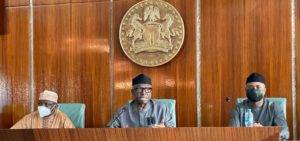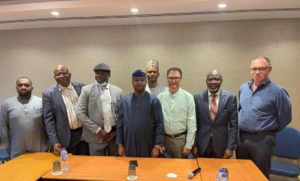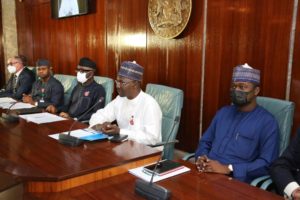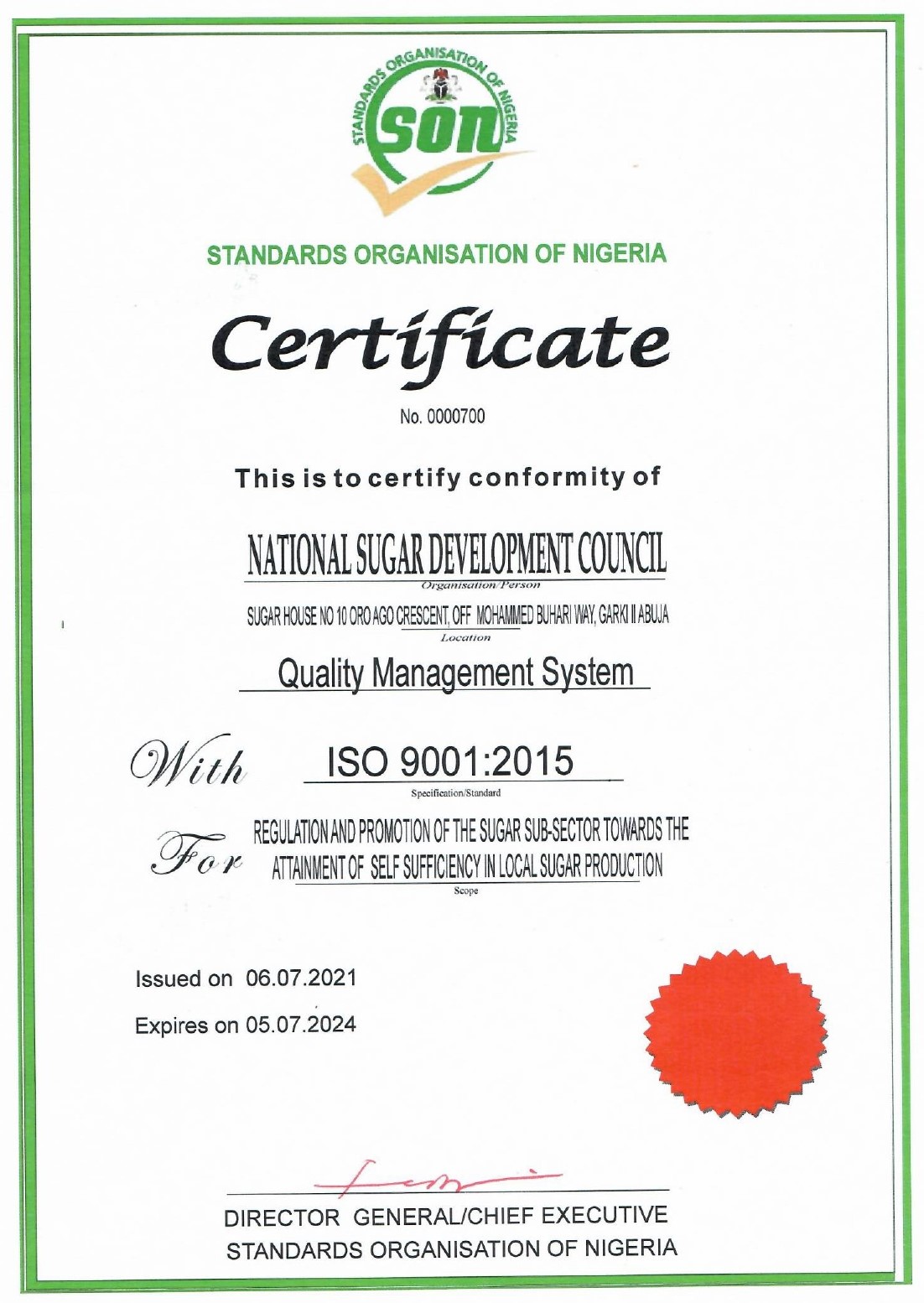Protocol
I bring the greetings and felicitation of the government and the people of Nigeria to the Chairman of Council, the Executive Director and this distinguished gathering of the International Sugar Organization (ISO). I am indeed delighted and honoured to make a statement at this 52nd session of the International Sugar Council (ISC). I will use this opportunity to give a brief summary of the progress made in the implementation of Nigeria Sugar Master Plan (NSMP) in the first five years (2013 -2017) and plans for the second half, 2018 –2023 in order to ensure the realization of the national self-sufficiency goal within the 10-year plan period.
Introduction
The Nigeria Sugar Master Plan (NSMP) is a road map policy document developed by the National Sugar Development Council (NSDC), to facilitate the achievement of self-sufficiency in national sugar requirement within 10 years and was approved by the Federal Government of Nigeria in September, 2012. At the commencement of implementation of the plan in 2013, Nigeria had the opportunity to present it to this august Council at its 46th meeting in 2014. Among the key deliverables of the NSMP are:
- production of 1,797,000 tonnes of sugar annually;
- production of 161.2 million litres of ethanol annually
- generation of 411.7 MW of electricity annually
- production of 1.6 million tonnes of animal feeds annually;
- creation 37,378 permanent jobs;
- creation of 79,803 seasonal jobs;
- US$65.8 million savings in foreign exchange on annual fuel imports under the proposed Ethanol (E10) blending mandate; and
- US $500 million annual savings in foreign exchange on sugar imports
Mr Chairman, distinguished members of this Council, allow me to present to you an update on the journey so far.
Modest Achiements recorded under NSMP
In the course of implementing the NSMP, modest achievements have been recorded in the areas of:
- No. of sites earmarked for sugar projects: A total of 12 different sites have been earmarked while developmental work has commenced on 9 sites covering a total of 150,000ha. For instance, the Dangote Sugar Group has developed its own Sugar Master Plan and acquired 6 sites covering about 120,000ha of land in various locations for establishment of sugar projects. Several other investors notably the BUA Group, the Golden Sugar Company, a subsidiary of the Flour Mills Nigeria Limited, the Lee Group etc, have also acquired various sites covering another 30,000ha of land to be used for their sugar projects.
- Cane nursery development: In addition to the existing BIP sites of the sugar Refineries, various medium and small-sized Green Field Projects have also commenced cane nursery development with the plan to expand these for the establishment of various sizes of sugar processing factories.
- Investment commitments to the industry: Since the commencement of the NSMP the Nigerian Sugar sector has attracted nearly US$1.5 billion investments. This includes the expansion of the Savannah Sugar Company owned by the Dangote Group and the new Sunti Golden Sugar Estate established at the cost of about US$300. This 4,500TCD plant, the first to be completed under the NSMP, was test-run in May 2016 and is to commence full commercial operations by this 2017/2018 crop season.
- Job creation: About 18,000 jobs have been created by the sugar industry from 2015 to date. This is expected to rise significantly as some of the on-going projects come on stream and the companies expand their operations.
NSMP Mid-Term Review
Having been implemented for five years now it became necessary to conduct the Mid-Term Review (MTR) of the NSMP, especially as the pace of implementation did not match projections. This was therefore held in June, 2017. The MTR revealed that performance by the three main Refineries – Dangote Sugar Refinery (DSR), BUA Sugar Refinery and Golden Sugar Refinery (GSR) – in their Backward Integration Programmes (BIP), when compared with the plans they signed–on to at the commencement of NSMP implementation in 2013, was about 43% on the average. The various challenges and constraints that led to this ‘below average’ performance were highlighted and measures were designed to redress identified lapses. Such measures include the release of new Operating Guidelines by NSDC to the operators who were also required to submit new and realistic BIP plans for the second phase covering 2018-2023. The aggregation of their submissions gave the following key deliverables for the second phase of BIP implementation:
- Number of project sites – 8 (DSR – 3; BUA – 2; GSC – 3).
- Total land area for all projects – 187, 000ha.
- Total hectares to be put under cane (Estate cane fields) – 137, 070ha.
- Total hectares under cane (for Outgrower farms) – 25, 850ha.
- Total tonnes sugar to be produced – 1, 550, 524MT.
- Jobs creation – Total: (Seasonal, Farm & Factory) – 65, 805
New Operating Guidelines
The new guidelines also stipulate revised performance criteria for raw sugar import quota allocation to Refineries as well as appropriate sanctions for poor BIP performance and raw sugar import quota infringements by operators. It also specified requirements for new entrants and strategic interventions by Government and its agencies to not only address operational challenges faced by operators but also attract and sustain investments in the sugar sector.
CONCLUSION
Having identified the constraints and designed measures to contain them, the country believes that the prospect for the effective implementation of the NSMP over the next five years (2018-2023) is fairly bright. The combination of the new guidelines with the actions that Government and its relevant agencies will be taking will hopefully result in a greater commitment by operators and ultimately, more sugar projects and substantial increases in local sugar production levels.
Mr. Chairman, let me use this opportunity to once again call on interested members of the ISO to come to Nigeria and invest in the sugar sector. I want to assure prospective investors that the government policy, NSMP, currently being implemented, provides for investment friendly measures that make sugar production competitive and profitable.
I thank you all for your attention.
December 2017





